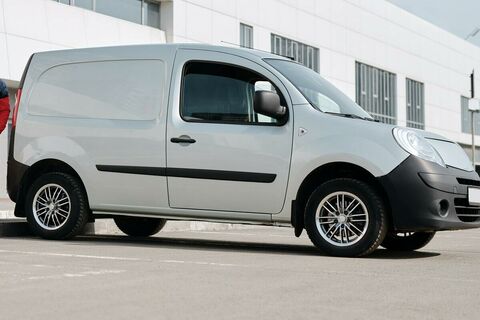Should you choose a company van over a company car?
Need a vehicle for your business? A company van could be a better and more tax-effective option than a company car. We explain why.
Having a vehicle to use for business purposes adds to the efficiency of your business. But should you opt for a company car or a company van?
Company vans are taxed in a far more favourable way than passenger cars, in most cases. Both company tax relief and personal benefit-in-kind tax charges are more tax-efficient for vans and, partly because of this, many business owners choose a van over a car.
What personal tax do you pay on a van compared to a car?
Personal tax for use of a company car is charged on an annual amount of up to 37% of the list price, depending on the car’s CO2 emissions. On top of this, the same percentage is applied to a lump sum of £25,300 to cover fuel, where that’s provided by the employer.
When you use a van, that’s taxed at a value of £3,600 for use of the vehicle, and on a further £688 where private-use fuel is provided. As you can see, that can be far more tax-effective.
What makes a vehicle a ‘van’?
A van is defined as ‘a vehicle designed primarily for the purpose of carrying goods’, and with a gross vehicle weight not exceeding 3,500 kilograms.
Generally, a vehicle with seats and/or side windows behind the driver’s seat will not count as a van, so however rugged your Land Rover Defender Station Wagon may be, it won’t count. Nor will your motorhome.
In the case of double-cab pick-up vehicles, the rules are relaxed so that where the payload exceeds 1,000 kilograms, it will still be classed as a van for fringe-benefits tax purposes. To calculate the payload, where the vehicle has a hardtop fitted, this is assumed to reduce the payload by 45 kilograms. Because of this, you should think carefully when considering fitting a hardtop to a vehicle with a rated payload of less than about 1,050 kilograms.
Are there other advantages to choosing a van?
If your van is only used privately for home-to-work travel, but not for other non-work purposes, this travel is ignored and no benefit-in-kind charge arises for you personally.
The favourable tax treatment isn’t the only bonus of a van. Vehicles that are classified as vans are also eligible for better treatment for capital allowances (including being eligible for the super-deduction capital allowance that’s currently available). You can also reclaim the VAT on the purchase of the van, in the same way, you can for VAT incurred on other business expenses.
Talk to us about buying a company van
Choosing a van instead of a company car can often be a beneficial move, both from a personal and company tax perspective.
If you’re in the market for a company vehicle, we’ll help you understand the tax rules around the provision of company vehicles – so you make the right decision regarding buying a van or car.
Still not sure which one is better for you? Get in touch and we will be happy to go through your specific circumstances.
Get in touchRelated Articles

How to improve UK business confidence
UK business confidence is under pressure - discover why now is the time to re-evaluate your strategy and growth plans.
Read On
Protecting you and your business: taking out insurance
Understand 5 common types of business insurance and how they help protect and secure your company’s future.
Read On
Finding the true potential of AI for UK small businesses
A recent report from the British Chambers of Commerce & Intuit showed that AI usage is growing among UK SMEs. Are you using AI to its full potential?
Read On